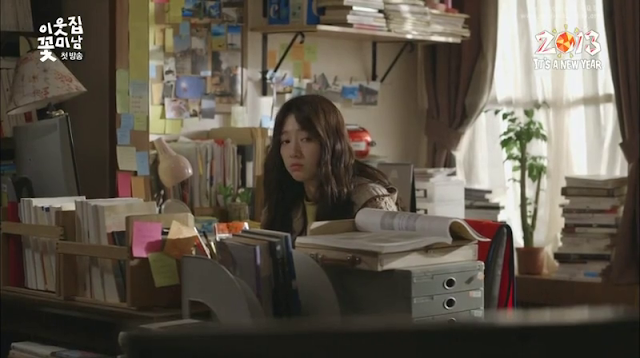Hikikomori : “The Lonely Beauty”
What is Hikikomori? A new Japanese drama? Of course, the answer is no. It is a Japanese phrase referred to the phenomenon of people who withdraw from social life, often seeking extreme degrees of isolation and confinement. Literally hikikomori means "pulling inward, being confined". As the name suggest, it is definitely more prevalent in Japan, perhaps.
In 2003, the Japanese Ministry of Health, Labour and Welfare established the following criteria for hikikomori,
- A lifestyle centered at home
- No interest or willingness to attend school or work
- Symptom duration of at least 6 months
- Schizophrenia, mental retardation, or other mental disorders have been excluded
- Among those with no interest or willingness to attend school or work, those who maintain personal relationships have been excluded.
Well, this hikikomori thingy per se hasn’t been on psychiatric diagnosis manual yet, but since the latest manual will be released soon, I guess this one would be considered too. Research done suggested that the person must meet each of the following 6 criteria to be diagnosed as hikikomori:
1. The person spends most of the day and nearly every day confined to home.
2. Marked and persistent avoidance of social situations (e.g., attending school, working) and social relationships (e.g., friendships, contact with family members).
3. The social withdrawal and avoidance interferes significantly with the person’s normal routine, occupational (or academic) functioning, or social activities or relationships.
4. The person perceives the withdrawal as ego-syntonic.
5. In individuals aged less than 18 years old, the duration is at least 6 months
6. The social withdrawal and avoidance are not better accounted for by another mental disorder, such as social phobia (e.g., avoidance of social situations because of fear of embarrassment), major depressive disorder (e.g., avoidance of social situations as a reflection of neurovegetative symptoms), schizophrenia (e.g., isolation because of negative symptoms of psychosis), or avoidant personality disorder (e.g., isolation because of fears of criticism or rejection)
(Source: The Journal of Nervous and Mental Disease,
Volume 198, Number 6, June 2010)
Well, what a pretty long copy and paste stuff huh? I know it’s pretty boring but I was really curious once I heard about this term few days ago. Hikikomori reminds me the life of Go Dok-mi, in Flower Boy Next Door played by Park Shin-hye.
“When she goes out into the world, that woman often becomes invisible. When she gets pushed aside by shoulders, stepped on by feet, and stuck in between the lines, she feels like she’s not visible to the world. So she hid in her room. The small room was soft and comfortable, like a nest to a bird that’s injured its wing. In that space, that woman can breathe freely. She never once missed the outside world or dreamt of it. At least until now…At least until now…”
~Flower Boy Next Door~
In Flower Boy Next Door, we can clearly see Go Dok-mi transition from being someone confined to her cave-like room made changes in her life after encountered flower boys next door. By the way, the drama is not all about the flower boy, but indeed about Go Dok-mi’s journey until she was able to see the world again, and for that, thanks to the flower boys, namely Enrique, Jin-rak, Watanabe and Dong-hoon.
Why did she become someone withdrawn from her own life? Yep, stressful events that leads her to be like that. I have no arguments about this since I’m aware that everyone had different stress threshold and their own ways of coping mechanism.Though in this drama I don't think that Go Dok-mi is one of the hikkomori but she's the best example from someone in kdramaland. Heh.
“To that woman, a scar was like falling into deep water. The onlookers who don’t know the depth of that scar just wonder why she can’t swim out. There are so many people who belittle a stranger’s scar. She didn’t want to hear such empty words. At least one person… from one person…”
But, what’s most important that finally our lonely beauty is able to come out to the world and lead a normal life. Yeah, she faced a lot of challenges and she managed to overcome it all. Luring a withdrawn girl out of her safety box is pretty hard task to do. And maybe that’s why Enrique gets the girl. I admit that I felt bad for Jin-rak since he’s the one who first noticed Go Dok-mi but seeing her first doesn’t mean that she’s yours unless you approach her. But Jin-rak never do so, arghh…why don’t you just tell her?
“You think you can know a person’s feeling by memorizing a few lines from a psychology books?”
~Go Dok-mi~
Go Dok-mi makes the transition when she finally being able to love herself. People should start to love to be able to receive love. Huh? Oh no, I’m not a love specialist anyway! Hahaha…
“For pushing you out, I’m sorry. For not giving up on me despite the long journey, thank you. Thanks to you, I can now love myself.”
~ Go Dok-mi to Enrique~
Let’s spread the love around, and find the love that could best define you. A love that can set you free and make you strong! Till then, take care everyone and let us be blessed with His love. Anyeong!






Comments